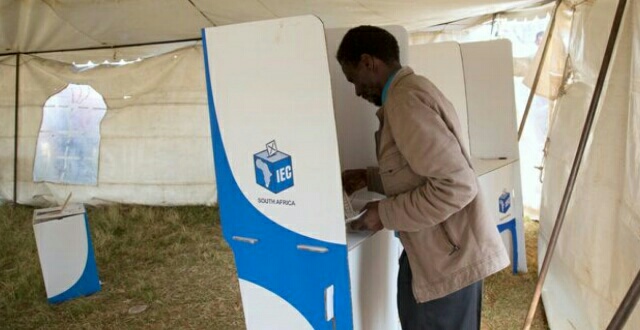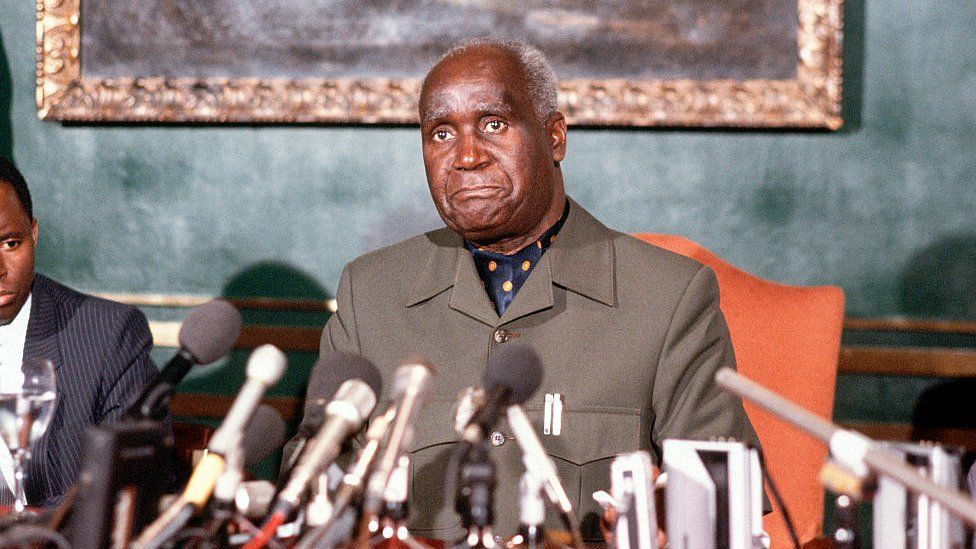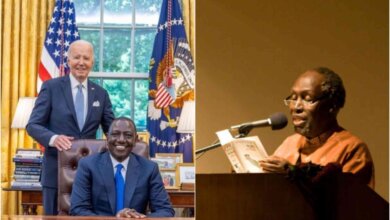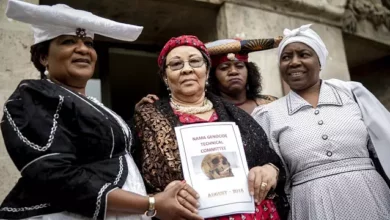
Politics is not often tabled in career guidance discussions, yet there are good opportunities and prospects for young people in Africa interested in public service. Youths in Africa need to be more interested in political careers.
We usually discuss careers in law and business and discuss company formation and types of companies but seldom politics.
There are many young people who are interested in getting into politics and to represent their communities in Parliament or in municipal councils, but simply do not know how or what it entails.

Image by: ROGAN WARD / REUTERS
This discussion is extremely relevant because of general elections in 2018, in for example Zimbabwe.
The need for young Zimbabweans in politics was also motivated by the intense debates that went on as people discussed the calibre and ages of the cabinet ministers who were appointed by the President last week.
There was general discontentment particularly from the youth that the appointed ministers were far too old and that there were younger people that should have been preferred. We shall see if this is true and if there really is a pool of ready and willing young politicians to choose from, but are being sidelined for older people.
[Related: Involvement of Youths in Africa in politics]
Many people too were not overall impressed by the calibre and qualifications of the appointed ministers.
However, it must be borne in mind that the President of Zimbabwe is limited in accordance with Section 104(3) of the Constitution to appointing cabinet ministers and deputy ministers from members of the Parliament and the Senate. The Constitution allows him to select only five other ministers from outside Parliament. So, legally, he could only choose from what he had and had limited flexibility. Indeed, the Cabinet is not a young Cabinet.
The youngest minister is 39 years old, while the majority in there are in their twilight years, with one minister reported to be 70 years old.
There is nothing wrong with being of an advanced age and it must never be used as the basis of unfair discrimination against senior citizens.
The critical shortage of young people in politics and leadership positions is disconcerting for any African country because Africa has the world’s largest youth population of all the continents. There are not enough youths in Africa politics, yet they are badly needed. Young people up to 35 years old bring their youth, energy, enthusiasm and innovation and relevant skills.
Zimbabwe’s youths (and indeed Youths in Africa) need to start entering politics so that they are positioned and ready for meaningful leadership positions.
Qualifications for Members of Parliament.
Section 125 of the 2013 Constitution of Zimbabwe prescribes the qualifications for Members of Parliament:
They have to be registered voters, so one cannot be an MP without having registered to vote.
It is, therefore, vital for prospective candidates to take advantage of the voter registration exercise which is underway.
In a few months down from now, when one makes up their mind to run in the election, it will be too late if they did not register to vote.
A prospective MP has to be at least 21 years of age. In the Senate, the minimum age is 40 years, which is also the minimum presidential age.
It is essential not to have been involved in a criminal offence as this could disqualify one from being a Member of Parliament.
There are no academic qualifications or special skills required to become a Member of Parliament or Member of the Senate.
This is good and inclusive, as it gives equal opportunities to all, but populism is its greatest failing.
It would have been ideal and prudent to prescribe some minimum academic qualifications to be a Member of Parliament. It is not productive or progressive to have semi-literate legislators debating and passing the country’s laws, yet this is the present reality in the Zimbabwean Parliament and Senate.
The work of legislators is a weighty task as they are the law makers for the nation. Legislators are expected to have a firm grasp and comprehension of issues and be able to articulate and debate serious issues.
When legislators find themselves overwhelmed with the quality or level of debate, they get sidetracked and start debating small houses and clowning around and making noise.
Age of politicians worldwide
The world’s leaders are getting younger. One only has to look at Europe to see the ages of their presidents.
The world’s youngest President is Austria’s 31-year-old Sebastan Kurz elected in October 2017.
Zimbabwe’s minimum presidential age is 40 years. The mean age of the youngest MP’s in the world is 20 years.
Tafadzwa Musekiwa holds the record for having been the country’s youngest MP at 24 in 2000.
Zimbabwean youths need to take a leaf and inspiration from that as well as Uganda’s Proscovia Oromait, who became Africa’s first-ever youngest parliamentarian.
She said she went into politics because she was tired of the corruption and the behaviour of politicians and so she became determined to run for a seat in the Ugandan parliament. Kenya has also elected a 23 year old MP.
It is vital that there be more young people in Parliament with professional qualifications and skills. Members of Parliament should be doctors, accountants, lawyers, teachers, nurses etc.
The President should not have to struggle with appointing, for example, a Health minister simply because there is just one medical doctor in Parliament.
The President should not struggle with appointing a Finance minister because there are no accountants or financial experts in Parliament out of the 210 members.
Understandably with the system as it is, many professionals find the process of running for elections risky to their professional and personal wellbeing.
However, it is a dirty job which has to be done, otherwise qualified young people will continue to be sidelined and underrepresented in critical areas.
As long as young professionals shy away from politics, Parliament will continue to be dominated by older people who are only there because they were brave enough to run for parliamentary elections.
Source: Miriam Tose Majome
Oral Ofori is Founder and Publisher at www.TheAfricanDream.net, a digital storyteller and producer, and also an information and research consultant.





